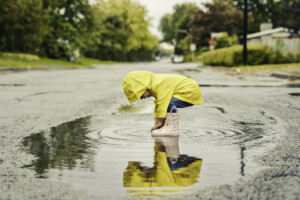Parenting is hard. And ever so important. We want to raise healthy, happy, and secure children. But there is no rule book or one right way to do this. At times, parenting can be confusing and contradictory. Let’s say your child wants ice cream right before bed. If you agree, it makes them happy, but is it the best choice? Saying “no” to our kids might not make them happy, but it’s often best for other areas of their development or well-being.8
Parenting is about balance, patience, and supporting our children as best as possible. There is no surefire way to make them happy. It’s an impossible task fraught with pressure to keep them happy all the time (setting you both up to fail). However, there are many ways we can support our children to grow up feeling secure, happy, and safe in their relationship with us. This, in turn, influences their mood and general well-being!1
7 Tips for Raising Secure and Happy Kids
It can feel tricky and tiring to try and do it all right. And sometimes, you still feel like you’re at a loss. The truth is that there’s never a way to make everything perfect. But there are things we can do to raise our children to feel secure and happy. Here are seven of my favorite tips for this:
1. Create a Routine in Your Children’s Lives
It can often seem counterintuitive, but children thrive on structure. Even children who seem to be resisting a schedule or routine at all costs tend to do better when they know what to expect from their life day in and day out.9 Consistency is essential for children as they learn their caregivers are reliable, which helps them feel stable and secure.2
Your child needs to know that you are there for them and that they can rely on you to meet their needs. This knowledge and belief that you will help them or that they can come to you builds trust and forms the basis of secure attachment.3 Children who experience secure attachment with a primary caregiver are more confident and have higher self-esteem. They can also better explore their world and learn well because they know they have safe and loving arms to return to if they need support.2
And yes, parents, that sometimes means stopping the movie we are enjoying watching to put them to bed. But that routine and your consistency in expectations will reap a significant benefit in the long run. So, find your routines and stick to them.
2. Set Necessary Boundaries
Raising secure and happy children starts with setting boundaries. While it seems logical to give your kids what they want to make them happy, that is not the case. It’s the opposite. Sometimes, saying “no” is another way of showing love.7,8 We may feel like we are being mean when we set a boundary. But our kids often respect us more for putting parameters on what they can and cannot do. Similarly to consistency, boundaries make them feel loved and secure.2
3. Be Clear and Demonstrate Expectations
Kids respond best when you let them know what you expect of them before the moment you ask them to do something. For example, if you want them to do the dishes and put their laundry away, be clear about when you expect them to do these things. The more they consistently know what is expected, the more they can rise to the occasion and become responsible.10 If you’ve never taught them how to clip their nails, for instance, then it’s unfair to expect them to know how to do it.
4. Use the Phrase, “I Am Here To Help”
When your child loses it, no matter their age, my favorite phrase is, “I am here to help.” This lets them know that you are their safe place and that you desire to help them figure out a solution to their problem. It’s also a great reminder about who we want to be when they are struggling — a helper. Not someone who adds fuel to the fire.
5. Model Good Behavior and Monitor Your Reactions
We must model what we expect of our children. Avoid reacting to things with strong emotions or establishing punishments that are overly harsh or not well-connected to the behavior they displayed (i.e., the punishment doesn’t fit the crime). Reacting in these ways can leave children feeling unstable or fearful in their relationship with their parents rather than raising them to feel secure and happy.2
We don’t have to be perfect, but be mindful about how you interact with your child, ensuring respectful communication. Also, make sure they see how you interact with others or react to challenges (including how you manage your feelings) because they learn from this.4
6. Teach Them About Their Emotions
It’s important to talk with your children about their emotions. They should understand the difference between feeling happy and nervous or anxious and confused. The more they understand their emotions, the better they can communicate their wants and needs.5 In addition, if they can recognize their emotions well, they are less likely to feel overwhelmed, confused, or frustrated by them. They will also be better equipped to cope or manage their emotions if they know exactly what they are feeling and why because we manage or support different emotions in unique ways.5
Managing emotions and coping with them helps our kids feel secure and self-efficacious. This is because they believe they can achieve things and meet their goals. When the day comes that they can verbalize their emotional state instead of having a meltdown, it is a massive win in the emotional intelligence department.
7. Accept Them for Who They Are
A child can feel secure and happy when they know they are accepted for who they truly are.6 Instead of pushing our ideals and expectations on our children, giving them space to unfold and discover themselves is essential. This is not to say we can’t have boundaries or rules. But we must allow them self-expression and the opportunity to share their thoughts and opinions. Then, they will know who they are and what they need is acceptable and valued.
Raising secure and happy children should be our ultimate goal as parents. It’s not always easy, but you will be off to a great start by implementing these seven tips. And eventually, your kids will thank you for giving them the best start in life!































